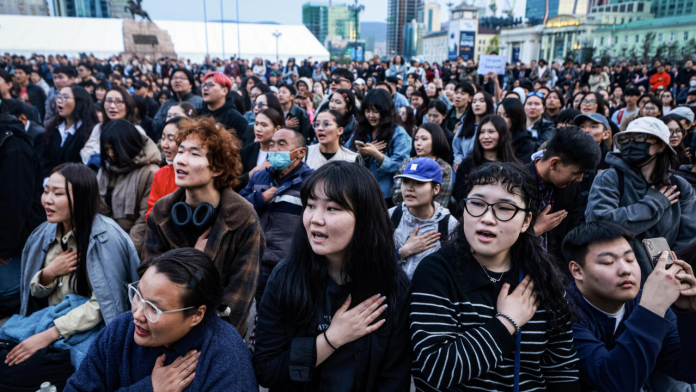Mongolia’s coalition government is on the brink of collapse as protests demanding Prime Minister Oyun-Erdene Luvsannamsrai’s resignation enter their ninth day, according to AP News.
The crisis, triggered by allegations of lavish spending by the PM’s son, has reignited public fury over systemic corruption and inequality in the resource-rich nation.
The governing alliance—comprising the Mongolian People’s Party (MPP), Democratic Party (DP), and HUN Party—fractured on 21 May when the MPP expelled the DP, its largest coalition partner, accusing it of breaching their agreement. The move came after DP lawmakers publicly backed protesters’ calls for Oyun-Erdene’s ouster. DP leader Gantumur Luvsannyam, who serves as deputy prime minister, dismissed the MPP’s claims.
I never signed anything saying I would gag my members. I know my party’s temperament.
Parliament is set to convene on 23 May to determine the PM’s fate. Oyun-Erdene, in power since 2021, has weathered previous resignation demands, but this marks his most severe challenge yet.
The protests, led largely by young Mongolians, erupted after reports detailed extravagant expenditures by the PM’s son, symbolising broader grievances over elite corruption. Demonstrators argue the nation’s vast mineral wealth—including copper, coal, and gold—has enriched politicians and tycoons.
Mongolia, a democracy since 1992, has struggled to translate its resource boom into equitable growth. The MPP-dominated government had pledged to address these disparities through its “Vision-2050” development policy, but critics argue reforms have stalled.
The coalition, formed after the MPP’s June 2024 election setback reduced its majority to 68 seats in the 126-member parliament, was intended to stabilise governance. The DP holds 42 seats and HUN 8. Its collapse risks paralysing legislation, including measures to tackle air pollution, infrastructure gaps, and economic diversification, key issues in a nation reliant on mining.
